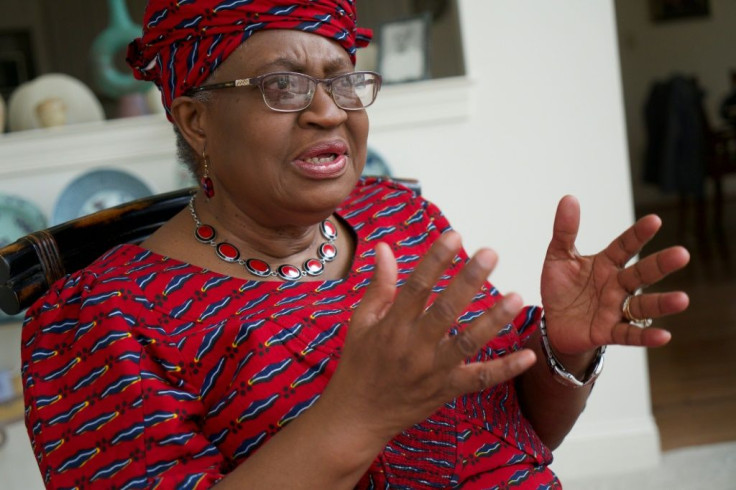New WTO Chief's Pile Of Problems
The coronavirus pandemic, log-jammed trade talks and a long-delayed meeting of member states are just a few of the crises awaiting Ngozi Okonjo-Iweala as she takes the helm of the World Trade Organization next month.
The WTO needs a kiss of life -- and fast -- and the first female and first African director-general of the global trade body will have to hit the ground running as she takes on the job in the middle of a major global recession.
Here are the four main challenges the former Nigerian finance minister will face when she starts in Geneva on March 1:
The WTO's top decision-making body meets once every two years, usually at the end of the year.
Many countries use it as a deadline to get trade negotiations moving forward.
After the December 2017 conference in Buenos Aires, the next meeting should have taken place in Nur-Sultan in June 2020 -- having been put back six months to avoid the bitter winter in Kazakhstan's capital.
But the Covid-19 pandemic forced it to be postponed indefinitely.
Okonjo-Iweala wants the meeting held before the end of the year, but the WTO's 164 member states will have to reach a consensus on the date and location, most likely during the WTO general council meeting on March 1 and 2.
For years, the WTO has made virtually no progress on major international trade agreements.
Negotiations on cotton and fishing subsidies are stalling, while others such as electronic commerce, launched in January 2019, are struggling to take off -- all of which risks leaving the WTO looking like an institution stuck in yesteryear's problems.
"I think the WTO is too important to allow it to be slowed down, paralysed and moribund," she told AFP in an interview. "That's not right."
Okonjo-Iweala, 66, has raised environmental issues and has made the fishing subsidies talks one of her immediate priorities, to show that the WTO can still produce results.
Her predecessor Roberto Azevedo watched on helplessly as trade hostilities brewed between the United States, China and the European Union.
Washington and Brussels are urging the WTO to revise China's status in the organisation, with the United States accusing Beijing of taking advantage of its developing economy classification to motor ahead.

Some hope Okonjo-Iweala's more political interpersonal skills rather than trade background can help inject some confidence back into the system.
"She can contribute to strengthening multilateralism by using her influence," Peter Ungphakorn, a former WTO secretariat staff member, told AFP.
Azevedo could not stop the United States bringing the Appellate Body, the WTO's dispute settlement system, to a grinding halt.
The seven-member body can uphold, modify or reverse a panel's legal findings.
But it has been out of action since December 2019 because Washington blocked the appointment of any new judges.
Okonjo-Iweala hopes to get the problem resolved before the next ministerial conference.
US criticism of the appeal court predates former president Donald Trump, although he cranked up hostilities to new levels.
His administration accused the body of exceeding its powers by issuing judgements it thought violated national sovereignty.
"It was a common mistake to identify WTO problems with president Trump," Hector Torres, a former legal counsel at the Appellate Body secretariat, told AFP.
"It would be equally wrong to believe that if President Joe Biden unblocked the selection of new appellate body members, this would reinstate confidence in WTO's current set of trade rules."
The coronavirus crisis has exposed divisions at the WTO, with members split over a proposed intellectual property rights exemption for Covid vaccines and treatments, which was put forward by India and South Africa and supported by a hundred countries.
Okonjo-Iweala aims to resolve the issue quickly.
More generally, she hopes to give the WTO a role in the pandemic fightback, in particular by lending support to Covax, the global vaccine programme that ensures access for poorer countries.
Drawing on her 25 years of experience as a development economist at the World Bank, and as chair of the Gavi vaccine alliance from 2016, she also wants to see developing countries produce more anti-Covid jabs themselves to overcome the shortage.
Her background "makes her uniquely positioned to steer the WTO through the gravest sanitary crisis in its history", said Pablo Bentes, a former legal officer at the Appellate Body secretariat.
© Copyright AFP 2024. All rights reserved.




















